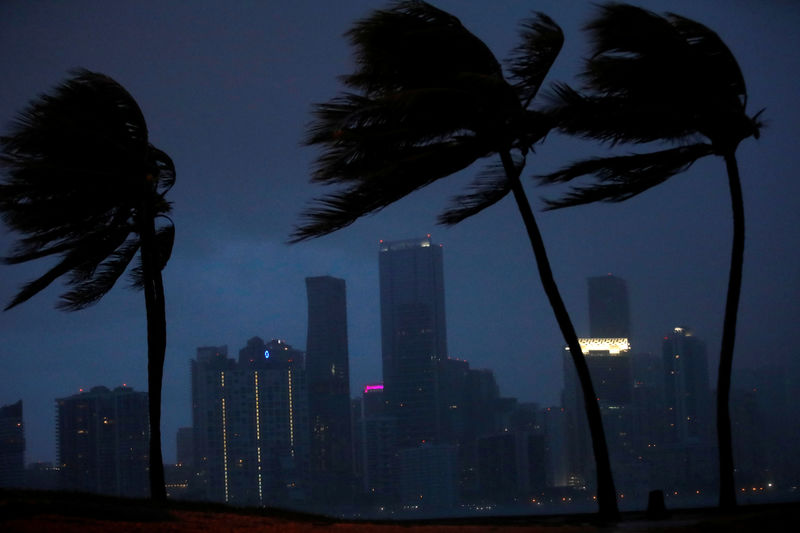By Geoffrey Smith
Investing.com -- Crude oil prices fell moderately in early trading in New York on Thursday, as it appeared that Hurricane Laura would pass through Texas and Louisiana without lasting disruption to the region’s refineries and pipelines.
By 9:15 AM ET (1315 GMT), U.S. crude futures were down 0.3% at $43.23 a barrel, while the international benchmark Brent contract was down 0.6% at $45.90 a barrel. Both had touched new five-month highs overnight on fears of extensive supply shortages.
The squeeze in gasoline RBOB futures was likewise fading fast, the contract falling another 4.1% to $1.3044 a gallon, its lowest in three days.
By 8 AM ET, the storm had weakened to a Category 2 hurricane from a Category 4. While it was still unclear what damage it had inflicted on the region’s infrastructure – beyond localized flooding and power outages – none of the major refinery operators had confirmed anything that hinted at prolonged outages offline, as had happened with Hurricane Harvey three years ago.
“Aside from an empty product tanker in Orange, TX, there are no major tankers docked/berthed within Houston and Port Arthur area,” consultancy TankerTrackers.com said via Twitter. “This was a very well-coordinated effort to minimize impact. Question is only the inland oil storage situation and how well that is coping right now.”
According to S&P Global Platts, refiners in Lake Charles, Beaumont, Port Arthur and Pasadena had taken a total of 2.36 million barrels a day of refining capacity offline ahead of the storm. Producers offshore, meanwhile, had shut in some 1.56 million b/d of production.
However, historically high stockpiles across the U.S. have cushioned such disruption as there has been. Petroleum Argus also noted that it has been relatively cheap to redirect product cargoes from Europe to the East Coast, further easing local supply pressures.
There was little impulse to the market from another week of initial jobless claims topping 1 million. The news was offset by a small upward revision to second-quarter gross domestic product figures, which showed the U.S. economy contracting by less than at first estimated in the three months through June.
Nor was there much immediate reaction to a speech from Federal Reserve Chairman Jerome Powell, who flagged a change in the central bank's strategy that should see interest rates stay lower for longer than previously thought.
Elsewhere, Russian President Vladimir Putin dropped a hint that his country would continue with output restraint deals for some time yet, saying in an interview with state television that it would be “better if the oil price were a little higher.”
